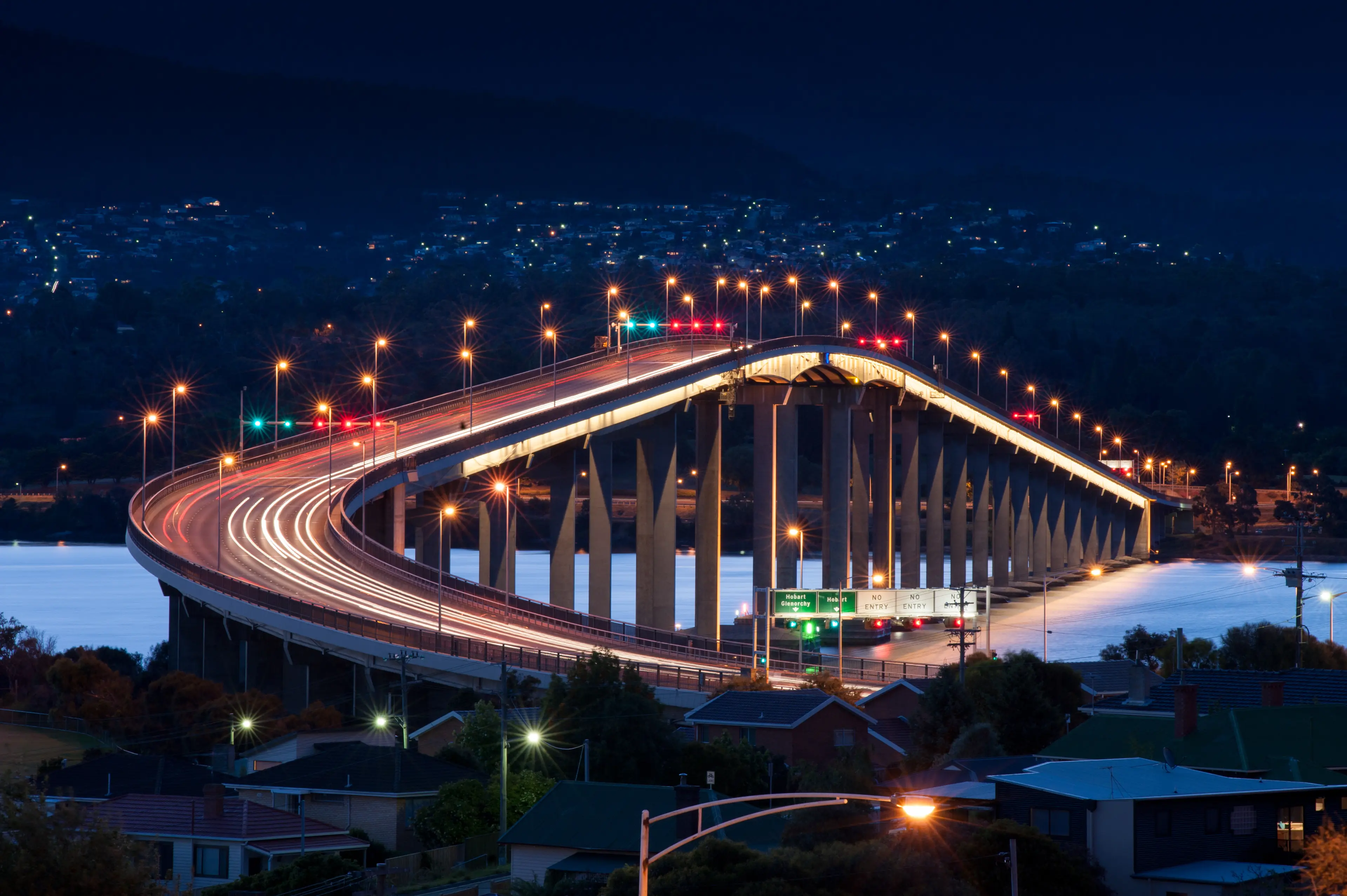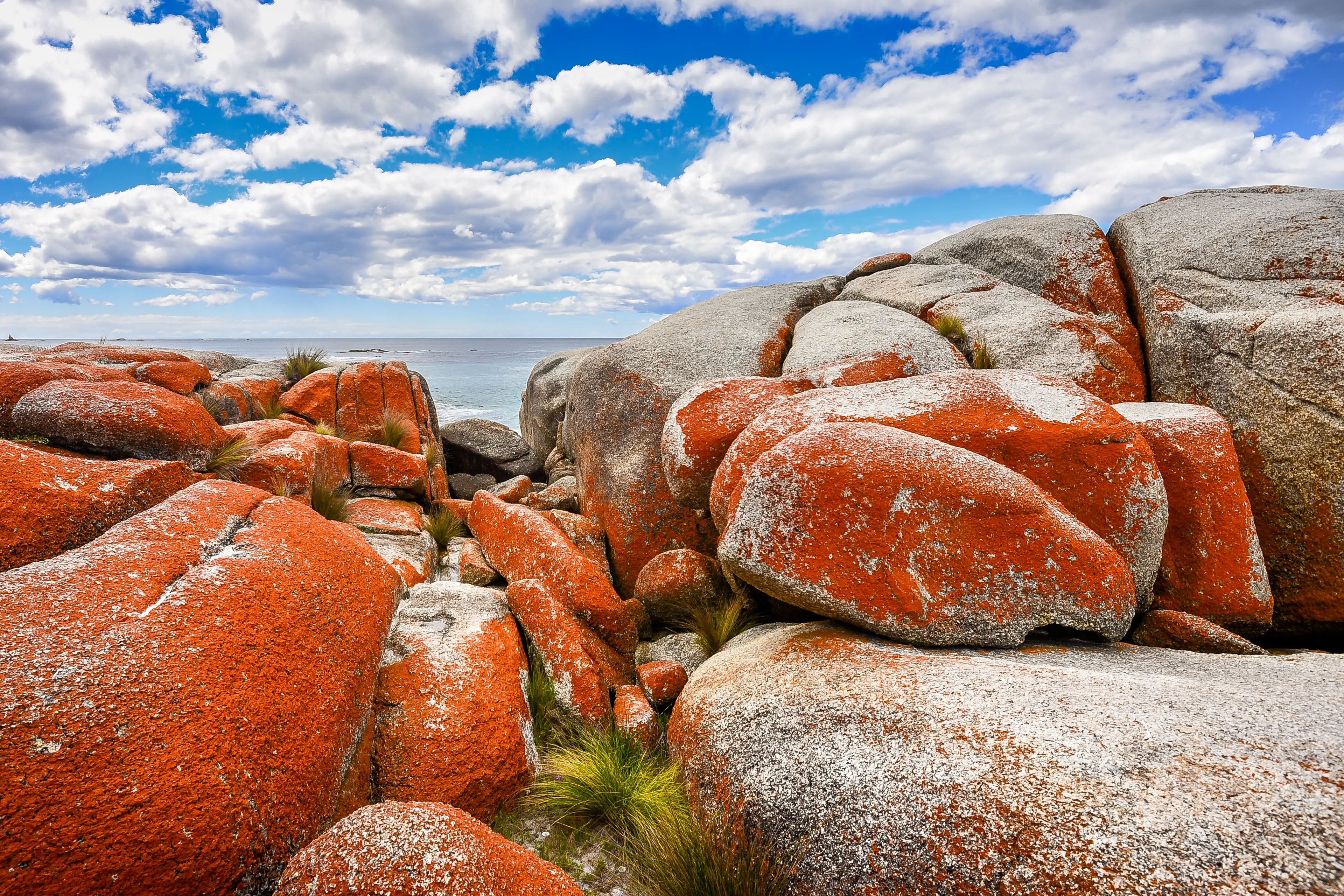2-Day Local Tasmanian Adventure: Outdoors, Food, Wine & Shopping with Friends
Tasmania, Australia
2 days
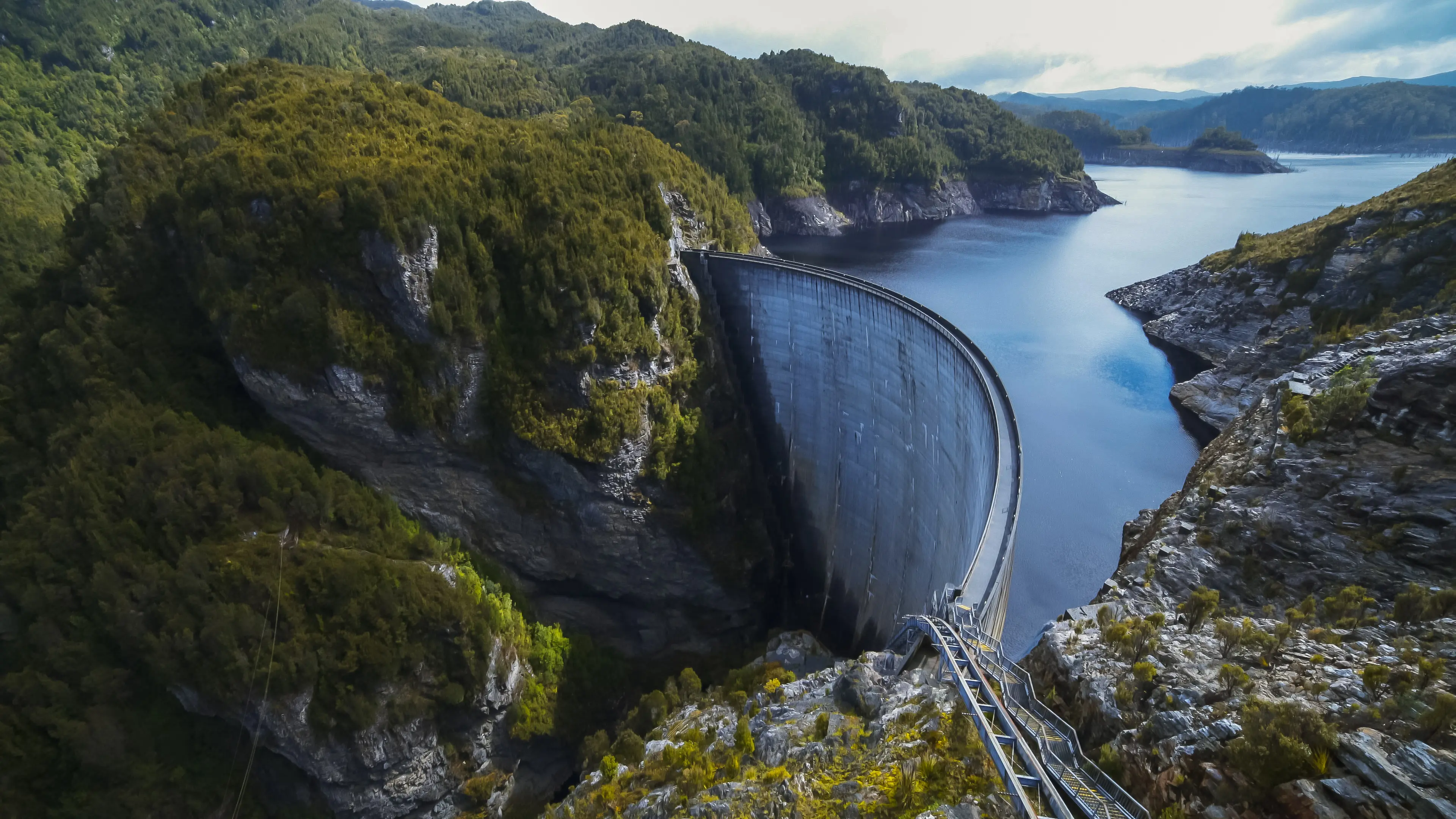
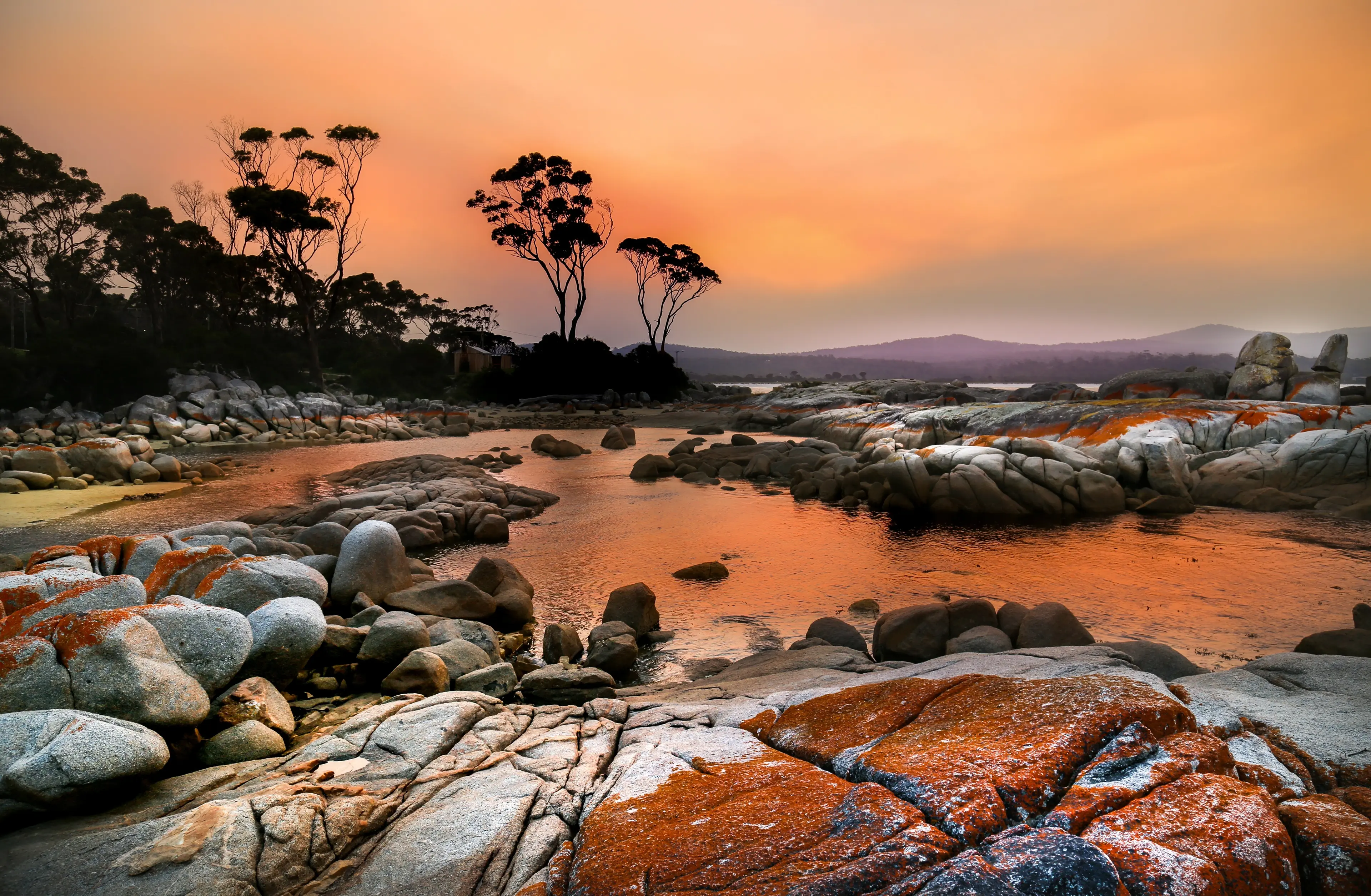
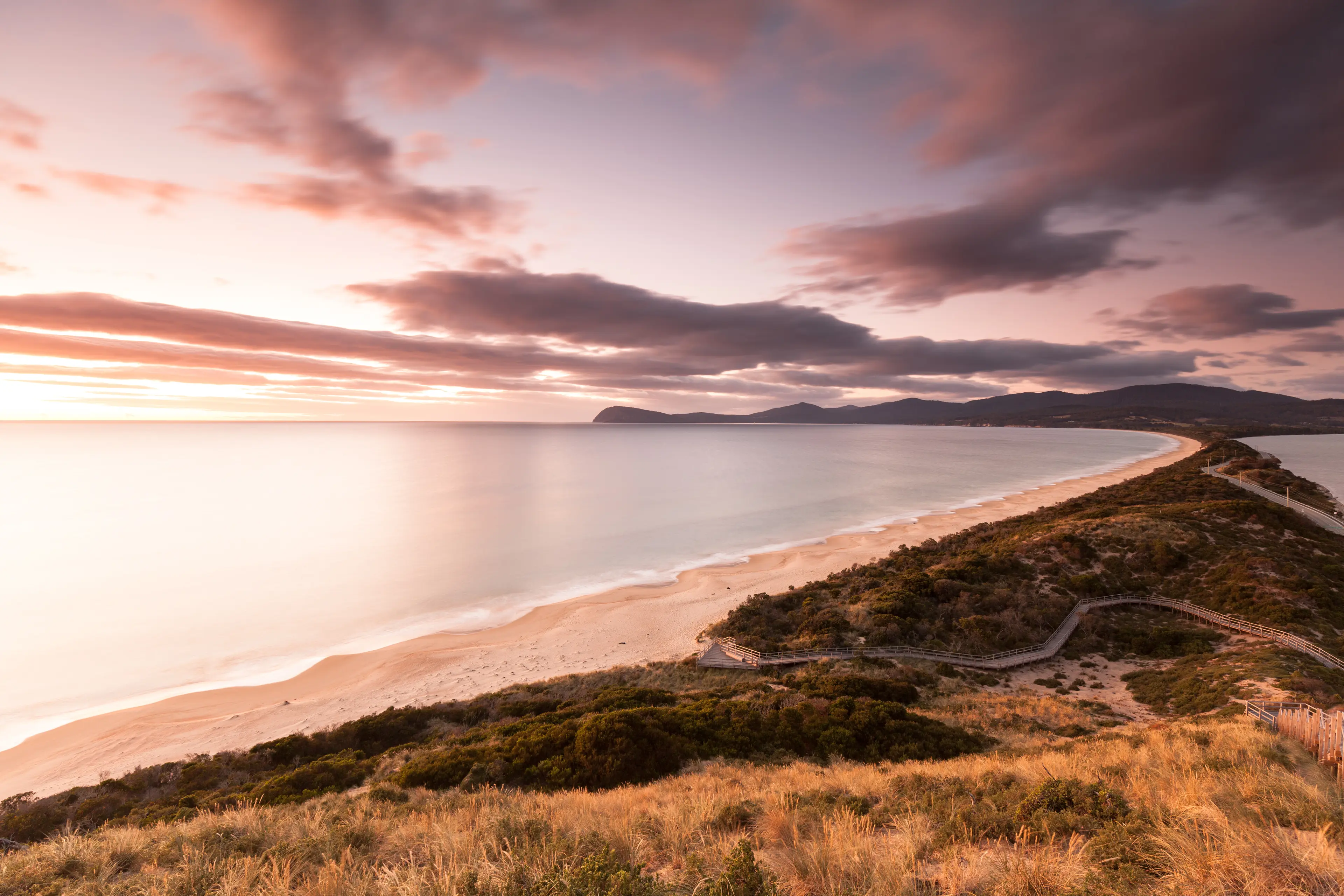
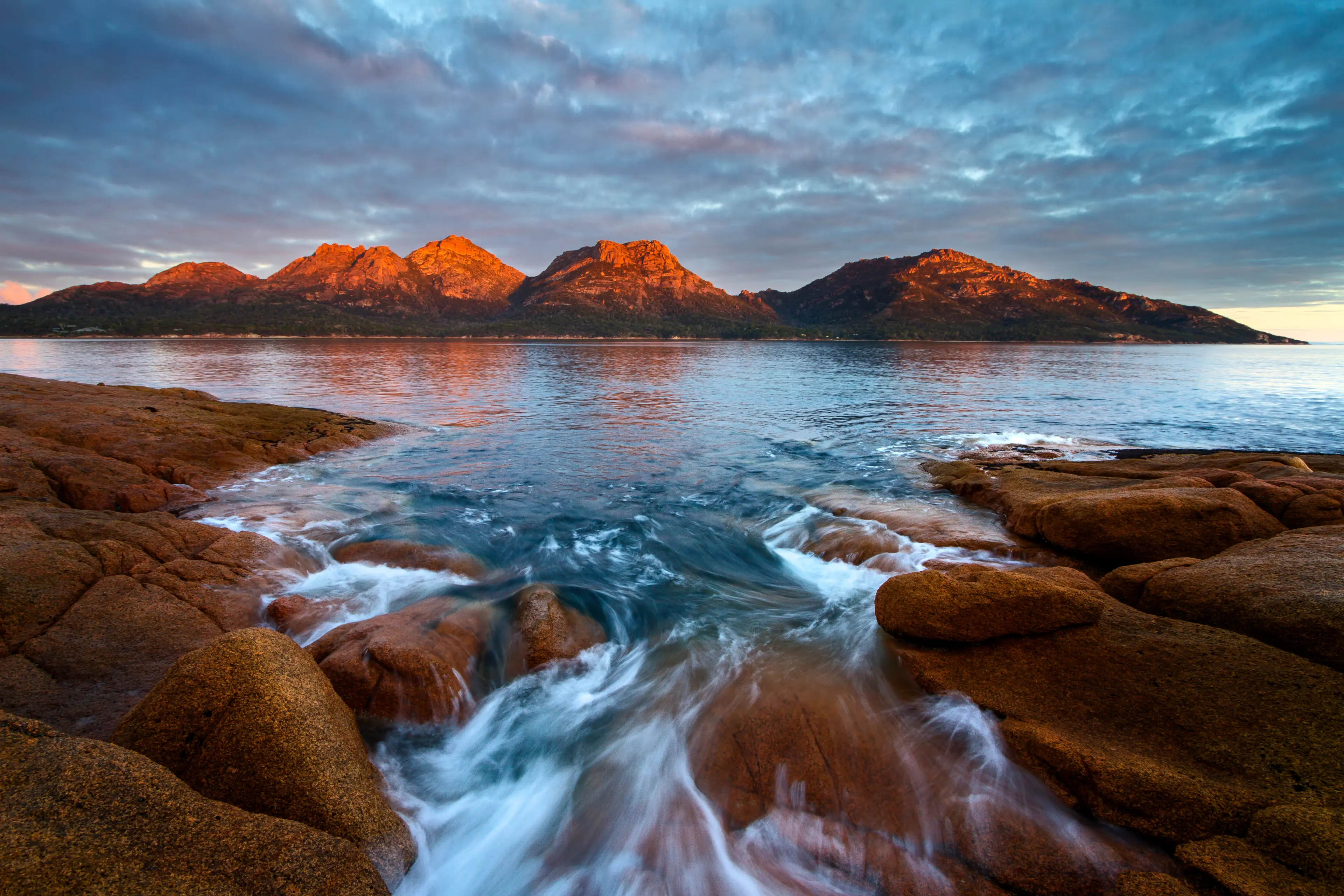
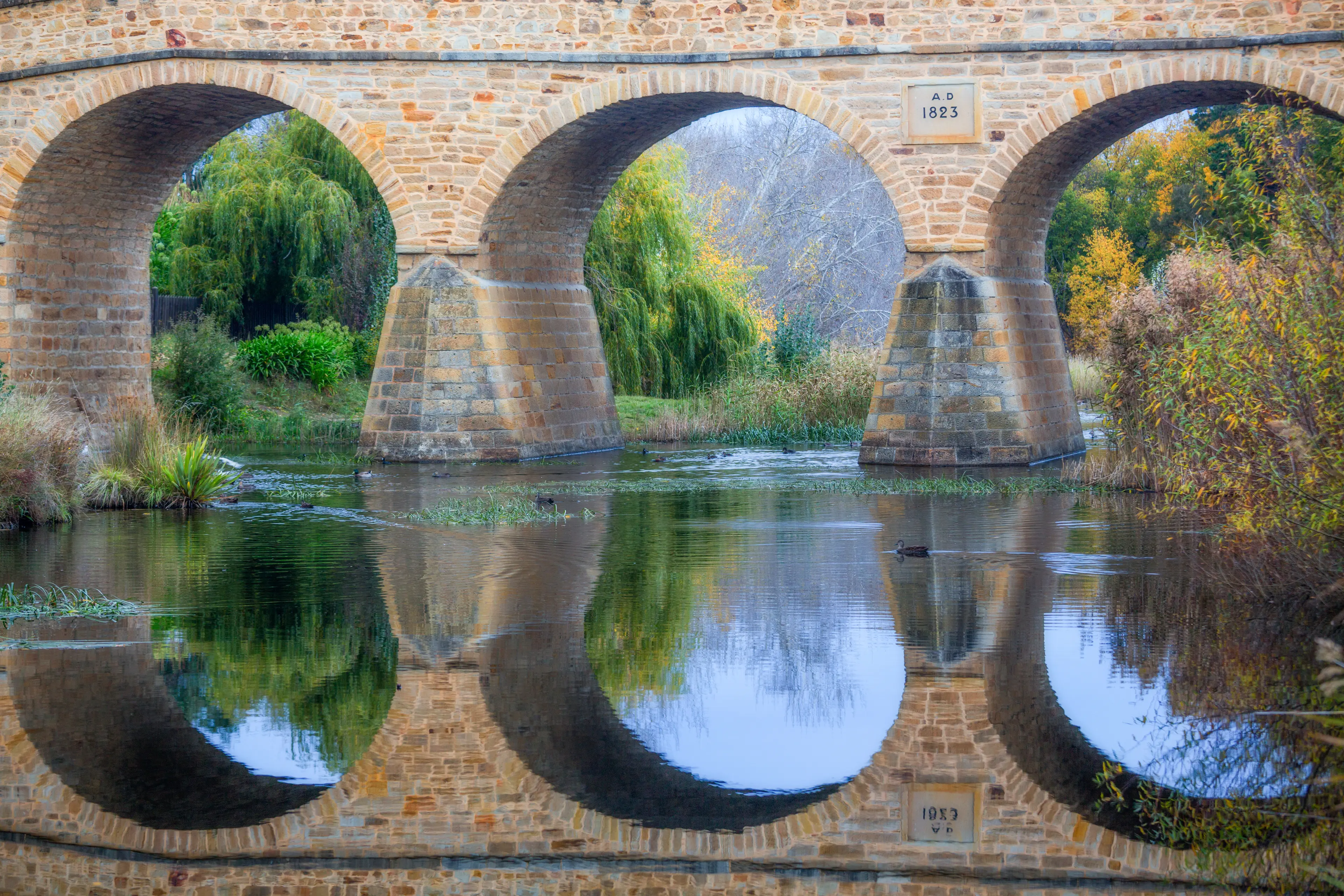
About Tasmania, Australia
Discover the captivating beauty of Tasmania, Australia's island state. Experience the rugged wilderness of the West Coast, or explore the pristine beaches of the East Coast. Visit Hobart, the state's capital, for its vibrant food and arts scene, historical sites and the famous Salamanca Market. Take a hike in the World Heritage-listed Cradle Mountain-Lake St Clair National Park or explore the stunning Freycinet National Park. Enjoy the rich history of Port Arthur, or indulge in the gourmet food and wine of the Tamar Valley. Witness the unique wildlife, including the infamous Tasmanian Devil. Tasmania offers an unforgettable blend of natural beauty, rich history, and exceptional local produce. Whether you're an adventurer, a foodie, or a history buff, Tasmania has something for everyone.
2-Day Itinerary
Day 2
Mount Wellington Hike, Vineyard Lunch, and Historic Port Arthur Visit
Morning
Kick off your second day with a hike up to the summit of Mount Wellington. The panoramic views of Hobart and the Tasman Sea are truly breathtaking.
Lunch
Have a relaxing lunch at a vineyard in the Coal River Valley. This region is known for its world-class Pinot Noir and Chardonnay.
Afternoon
Spend the afternoon exploring the historic Port Arthur. This former convict settlement is now a UNESCO World Heritage site and offers a fascinating glimpse into Tasmania's past.
Dinner
Enjoy a seafood feast at a local restaurant. Tasmania's pristine waters produce some of the best seafood in the world, including oysters, salmon, and lobster.
Evening
End your Tasmanian adventure with a nightcap at a local whisky distillery. Tasmania is home to some of Australia's best single malt whiskies.
Attractions in Itinerary (7)

1Salamanca Market
Located on Hobart's Waterfront, Salamanca Market is a vibrant outdoor market held every Saturday. It's a great place to buy local produce, arts, crafts, and antiques, and enjoy live music and street food.

2Royal Tasmanian Botanical Gardens
Established in 1818, the Royal Tasmanian Botanical Gardens are the second-oldest botanical gardens in Australia. They feature a stunning collection of Tasmanian, Australian, and exotic plants.

3Museum of Old and New Art (MONA)
MONA is Australia's largest privately-owned museum and art gallery, showcasing a diverse collection of old and new art. The building itself is a work of art, built into the cliffs along the Derwent River.

4Mount Wellington
Dominating the Hobart skyline, Mount Wellington offers breathtaking views over the city and beyond. It's a popular spot for hiking, cycling, and rock climbing.

5Port Arthur
Historic site that was once a penal settlement, now a World Heritage property with over 30 buildings, ruins and restored period homes.

6Coal River Valley Vineyard
A vineyard in the Coal River Valley, known for its premium cool climate wines. Tours and tastings available.

7Derwent River Cruise
A scenic cruise along the Derwent River, offering views of the city and surrounding nature.
Local Food and Drinks (11)

Tasmanian Leatherwood Honey
This unique honey is produced from the nectar of the Leatherwood tree, which is native to the rainforests of Tasmania. It has a distinctive spicy and floral flavor.

Tasmanian Salmon
Tasmania is known for its high-quality salmon, which is farmed in the clean, cool waters surrounding the island. It's often served smoked or grilled.

Tasmanian Oysters
Tasmania's pristine waters produce some of the best oysters in the world. They are known for their fresh, briny flavor and can be enjoyed raw or cooked.

Tasmanian Truffles
Tasmania's cool climate is perfect for growing these highly prized fungi. Tasmanian truffles are known for their rich, earthy flavor and are used in a variety of dishes.

Tasmanian Cheese
Tasmania is home to numerous artisan cheese makers. The island's dairy products are renowned for their quality, and the cheese ranges from sharp cheddar to creamy brie.

Tasmanian Abalone
This shellfish is a delicacy in Tasmania. It's often served in a simple preparation to highlight its tender texture and delicate flavor.

Tasmanian Scallops
Tasmanian scallops are known for their sweet, delicate flavor. They are often served seared or in a creamy sauce.

Tasmanian Berries
Tasmania's cool climate is perfect for growing a variety of berries, including strawberries, raspberries, and blackberries. They are often used in desserts or served fresh.

Tasmanian Apples
Tasmania is often referred to as the 'Apple Isle' due to its long history of apple cultivation. The apples are crisp, juicy, and full of flavor.

Tasmanian Whisky
Tasmania's cool climate and pure water make it an ideal location for whisky production. Tasmanian whiskies are known for their smooth, complex flavors.

Tasmanian Wine
Tasmania's cool climate is perfect for producing high-quality wines, particularly Pinot Noir and Chardonnay. The wines are known for their elegance and balance.
Best time to visit
The best time to visit Tasmania, Australia is during the summer and autumn months, from December to March. During this period, you can experience warm weather with temperatures ranging from 17°C to 23°C, perfect for outdoor activities and exploring the natural beauty of the island. The days are longer, allowing more time for sightseeing. Autumn, particularly March, is also a great time to visit for those interested in witnessing the stunning fall foliage. However, if you're a fan of winter sports, June to August offers a cooler climate and the opportunity for activities like skiing. Please note that Tasmania's weather can be unpredictable, so it's always a good idea to pack for all conditions.
How to get around
Car Rental
Renting a car is one of the most popular ways to get around Tasmania. The island's size makes it ideal for road trips, and there are many car rental companies available at the airport and in major towns. Remember to drive on the left side of the road in Australia.
Campervan Rental
For those who prefer a more adventurous trip, renting a campervan can be an excellent choice. It provides both transportation and accommodation, allowing you to explore Tasmania at your own pace and stay overnight in beautiful locations.
Public Transport
Tasmania's public transport system includes buses and ferries. Metro Tasmania operates bus services in the major cities, while Tassielink and Redline Coaches provide services to regional areas. The Bruny Island Ferry and the Maria Island Ferry are popular with tourists.
Ridesharing
Ridesharing services, such as Uber, are available in Tasmania. They can be a convenient and cost-effective way to get around, especially in urban areas like Hobart and Launceston.
Bicycle
Tasmania's stunning landscapes and relatively quiet roads make it a great place for cycling. There are numerous bike rental shops, and many areas have dedicated cycle paths.
Taxi
Taxis are readily available in Tasmania's cities and larger towns. They can be hailed on the street, booked over the phone, or booked through a smartphone app.
Guided Tours
There are many companies offering guided tours in Tasmania. These can be a great way to see the sights without the hassle of planning and driving. Tours can range from day trips to multi-day adventures, and can cover a wide range of interests, from wildlife and nature to food and wine.
Walk
Many of Tasmania's attractions are in close proximity, making walking a viable option. Cities like Hobart and Launceston have pedestrian-friendly city centers, and there are numerous walking trails throughout the island.
Important information
Currency$ AUD
Time zoneUTC+10
Driving sideLeft
Emergency phone000 (112 on cell phone)
Drinking waterYes
Power sockets
Voltage230 V
Things to know about Tasmania, Australia as a first time visitor
1
Tasmania is an island state of Australia, located 240 km to the south of the Australian mainland.
2
The capital and largest city of Tasmania is Hobart.
3
Tasmania has a cool temperate climate with four distinct seasons. The warmest months, December to March, have an average temperature range of 52-70°F (11-21°C). The coldest months, June to August, have an average temperature range of 37-52°F (3-11°C).
4
Tasmania is known for its unique wildlife. It is the only place in the world where you can find the Tasmanian devil in the wild.
5
Tasmania has a population of around 541,100 people, making it the least populated state in Australia.
6
The official language in Tasmania is English. However, you may hear some unique local slang and accents.
7
The local currency is the Australian dollar (AUD). Credit cards are widely accepted, and ATMs are readily available.
8
Tasmania operates on Australian Eastern Standard Time (AEST), which is 10 hours ahead of Coordinated Universal Time (UTC+10).
9
Tasmania has a strong cultural heritage with a rich history of Aboriginal occupation dating back at least 35,000 years.
10
Tasmania is renowned for its pristine wilderness areas, with over 40% of the state being national parks and World Heritage Sites.
11
Tasmania has a strong food and wine culture, with a focus on locally sourced and organic produce.
12
Tasmania has a well-developed road network, but be aware that distances can be deceptive due to winding roads and varying speed limits.
13
Tasmania has a lower crime rate than most other Australian states, but it's still important to take standard travel precautions.
14
Tasmania's health care system is good, with hospitals and clinics in all major towns. However, travel insurance is recommended.
15
Tasmania has a diverse range of accommodation options, from luxury lodges to budget hostels and campsites.
16
Tasmania's power plugs and sockets are of type I. The standard voltage is 230 V, and the standard frequency is 50 Hz.
17
Tasmania has strict quarantine regulations to protect its agriculture and environment. Be aware of what you can and can't bring into the state.
18
Tasmania is a great place for outdoor activities, including hiking, cycling, fishing, and wildlife spotting.
19
Tasmania has a strong arts scene, with numerous galleries, festivals, and live music events.
20
Tasmania's climate can change quickly, so it's a good idea to pack layers and be prepared for all weather conditions.
Packing List
Clothing
Underwear
Socks
T-shirts
Long-sleeve shirts
Pants/Jeans
Comfortable walking shoes
Jacket or sweater
Pajamas
Swimwear
Hat/Cap
Sunglasses
Scarf
Toiletries
Toothbrush and toothpaste
Shampoo and conditioner
Body wash or soap
Deodorant
Razor and shaving cream
Makeup and makeup remover
Sunscreen
Insect repellent
First-aid kit
Prescription medications
Hand sanitizer
Travel documents and essentials
Passport/ID
Flight tickets
Hotel booking confirmation
Travel insurance documents
Credit and debit cards
Cash in local currency
Emergency contacts and addresses
Guidebook or map
Electronics and gadgets
Smartphone
Charger for smartphone
Power bank
Headphones
Camera
Charger for camera
Universal travel adapter
Miscellaneous items
Travel pillow
Earplugs and eye mask
Snacks
Water bottle
Books or e-books
Travel-size laundry detergent
Ziplock bags
Umbrella
Weather Conditions
Tasmania, an island state of Australia, is known for its temperate maritime climate, meaning it experiences mild and relatively stable weather conditions throughout the year. However, it's important to note that Tasmania's weather can be unpredictable, so it's always wise to be prepared for all conditions. In the summer months (December to February), temperatures typically range from 12°C (54°F) to 21°C (70°F). This is the perfect time for outdoor activities such as hiking, cycling, and exploring the beautiful beaches. However, remember to pack some light layers as evenings can get chilly. Autumn (March to May) in Tasmania is a beautiful season with temperatures ranging from 9°C (48°F) to 17°C (63°F). The changing colors of the foliage make for stunning scenery. It's a great time to visit the vineyards and enjoy the local produce. Winter (June to August) can be quite cold with temperatures ranging from 2°C (36°F) to 12°C (54°F). Snowfall is common in the highlands, making it a great time for snow-based activities. Be sure to pack warm clothing, including a heavy coat, gloves, and a hat. Spring (September to November) sees temperatures ranging from 8°C (46°F) to 17°C (63°F). This is the season when Tasmania's wildflowers bloom, making it a great time for nature walks. Regardless of when you visit, always carry a waterproof jacket as rain showers can occur at any time of the year. Also, Tasmania's ozone layer is thinner than in other parts of the world, so don't forget your sunscreen, even in winter. Lastly, always check the local weather forecast before planning your day's activities. Tasmania's weather can change quickly, especially in the mountains and highlands.
| Month | Hi / Lo (°C) | Weather Overview |
|---|---|---|
January | 22° / 9° | January is the warmest month in Tasmania, with average high temperatures reaching 22°C. It's a great time for outdoor activities and exploring the beautiful landscapes. |
February | 21° / 9° | February is also a warm month with less rainfall, making it ideal for beach activities and wildlife spotting. |
March | 20° / 8° | March sees a slight drop in temperature but it's still comfortable for sightseeing and hiking. |
April | 17° / 7° | April is the start of autumn in Tasmania, with cooler temperatures and beautiful fall foliage. |
May | 15° / 5° | May is a bit cooler, but it's a great time to visit for those who prefer less crowded tourist spots. |
June | 12° / 3° | June is the start of winter in Tasmania, with the lowest temperatures of the year. It's a good time for indoor activities and enjoying local cuisine. |
July | 12° / 3° | July is the coldest month in Tasmania, with snowfall in the highlands. It's a great time for winter sports like skiing. |
August | 13° / 4° | August is still quite cold, but the end of the month sees the start of the beautiful spring bloom. |
September | 15° / 5° | September is the start of spring, with warmer temperatures and beautiful flowers blooming across the island. |
October | 17° / 6° | October is a pleasant month with moderate temperatures, perfect for outdoor activities and exploring the national parks. |
November | 19° / 7° | November is a great time to visit Tasmania, with comfortable temperatures and less rainfall. |
December | 21° / 8° | December is the start of summer in Tasmania, with long daylight hours perfect for exploring the island's stunning landscapes. |
Did you know?
Places near by Tasmania, Australia

Phillip Island
Known for its wildlife and motorsport, Phillip Island offers visitors the chance to see penguins, seals, and koalas in their natural habitat.

Great Ocean Road
A scenic drive along the south-west coast of Victoria, featuring the iconic Twelve Apostles.

Melbourne
Australia's second-largest city, known for its arts, culture, and coffee.

Wilson's Promontory
The southernmost point of mainland Australia, known for its wildlife and rugged landscapes.

Mount Buller
A popular ski resort in the Australian Alps.

Sydney
Australia's largest city, known for its harbourfront Sydney Opera House.

Canberra
The capital of Australia, known for its national institutions and galleries.

Brisbane
The capital of Queensland, known for its youthful zeal, charming vibe, and 280 days of sun a year.

Adelaide
The capital city of South Australia is simply enchanting, a treasure trove of shopping, fine arts, gastronomy and outdoor activity.

Perth
The capital of Western Australia, known for its stunning beaches, great food, and warm weather.
